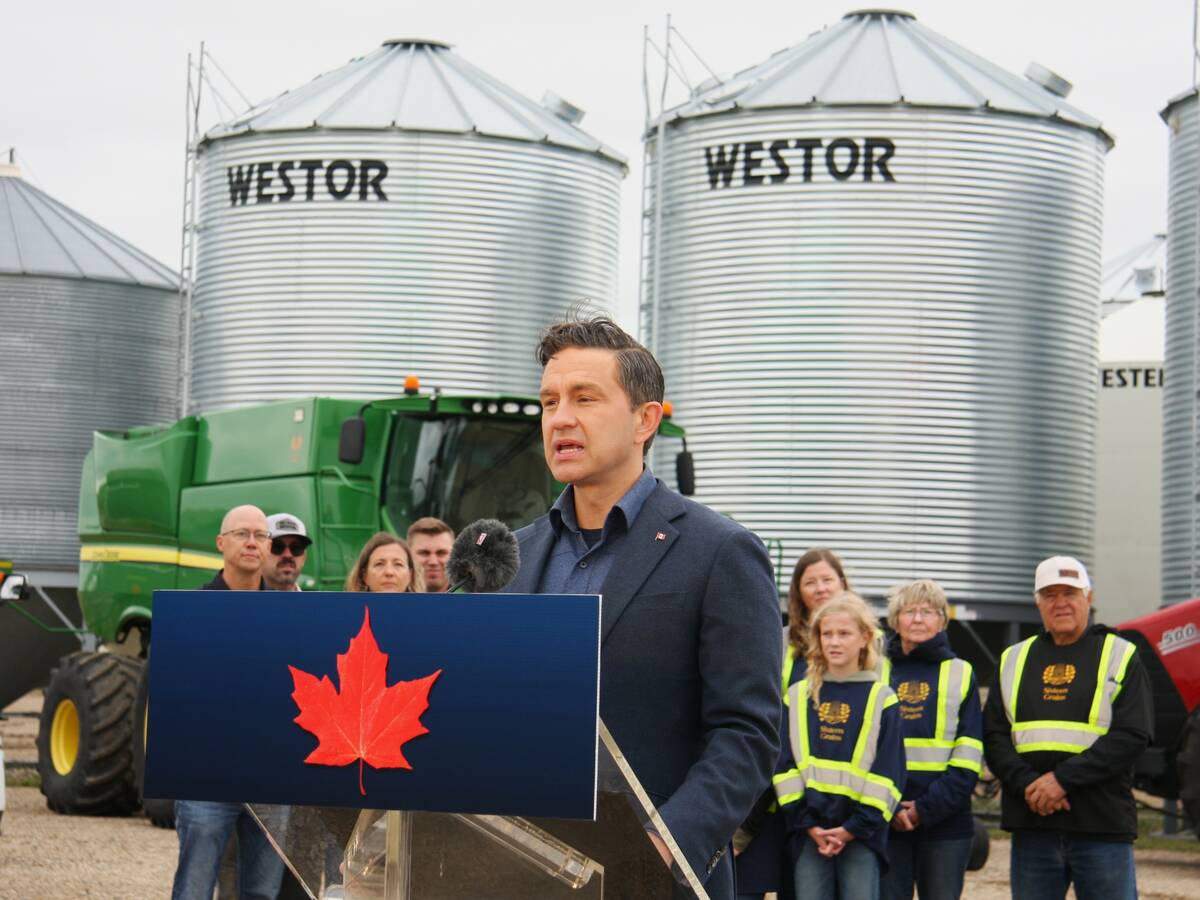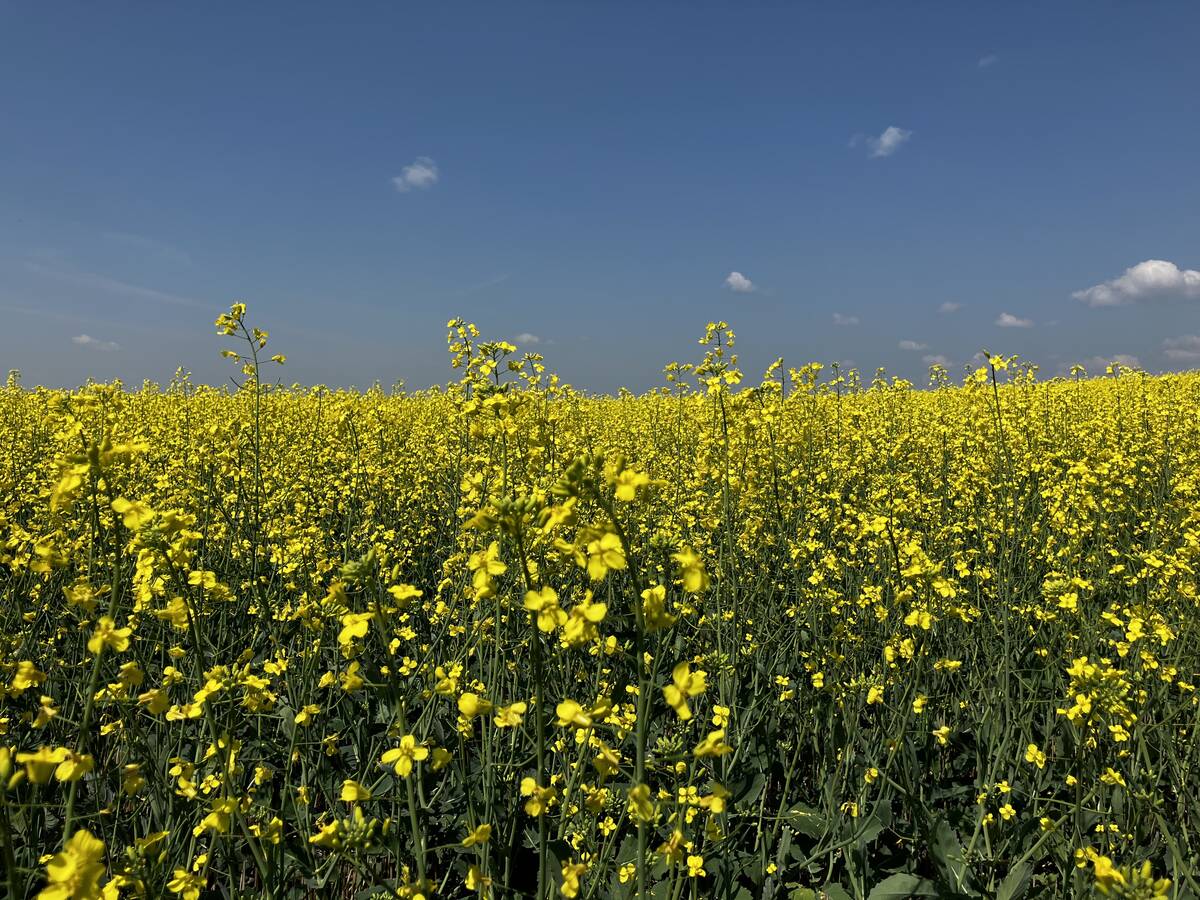Glacier FarmMedia – Political leaders across party lines are demanding immediate action from Ottawa in light of China’s new tariffs against Canadian canola.
Manitoba premier Wab Kinew, Progressive Conservative critics, the federal NDP and federal Conservative leader Pierre Poilievre are all calling for urgent government intervention in the matter.
China’s preliminary 75.8 per cent tariff on all Canadian canola seed shipments, which took effect Aug. 14, is the most recent escalation in a months-long trade spat.
Read Also

House ag committee to undertake several studies
The House of Commons standing agriculture committee has set its agenda for the coming months. Members began the fall sitting with a two-hour update on international trade
Last year, China announced an anti-dumping investigation against Canadian canola seed, a move many considered retaliation for Canada’s decision to impose 100 per cent tariffs against Chinese electric vehicles.
In March, China imposed 100 per cent duties against canola meal, oil and peas, as well as 25 per cent duties on pork and aquatic products, pointing to Canadian tariffs on Chinese steel and aluminum.
China has claimed that its investigation found the Canadian canola industry has benefited from substantial government subsidies and preferential policies, a claim that Canadian industry and government disputes.
China has since announced another anti-dumping investigation into Canadian pea starch.
Canola Council of Canada president Chris Davison confirmed the severity of the situation in an Aug. 12 press release.
“With this preliminary determination of dumping for canola seed together with the existing 100 per cent anti-discrimination tariffs on canola meal and oil, the Chinese market is effectively closed to the Canadian canola industry,” Davison said.
Added Kinew: “Yesterday, a billion dollars. That’s what the Chinese tariffs cost Western Canada. Today, you’re talking about a further impact, hundreds of millions of dollars, and this is primarily going to be borne by the farmer in the field.”
The federal NDP echoed Kinew in an Aug. 13 news release. The party’s critics for agriculture (Gord Johns) and international trade (Heather McPherson) said China’s move “demands urgent action from the Liberal government.”
Speaking from a Saskatchewan grain farm Aug. 14, Poilievre criticized prime minister Mark Carney’s handling of Chinese relations, especially a taxpayer-backed loan for B.C. Ferries to buy Chinese-made vessels.
“Can you imagine the sign of weakness that Carney is sending to the dictatorship in Beijing? You tax and tariff our farmers, and we’ll give you a billion-dollar loan to create jobs in your country,” Poilievre said.
In a post on X Aug. 14, Carney said he had spoken to Saskatchewan Premier Scott Moe on the matter and discussed farm support, although no specifics had yet been announced.
Carney also said federal agriculture and international trade ministers had met with industry
“Canada does not dump canola,” the prime minister wrote.
“Canadian canola products meet the highest standards and our inspection systems are robust. We will advance a constructive dialogue with Chinese officials to address our respective trade concerns, while diversifying our trade abroad and supporting our canola producers at home.”
Farmers worried
The timing couldn’t be worse for farmers entering harvest season, according to Manitoba Canola Growers chair Warren Ellis, who joined Kinew at the podium in Winnipeg, along with Keystone Agricultural Producers president Jill Verwey.
“We don’t know how long it’s going to last. There’s just so many things we don’t know,” Ellis said.
“Farmers are going to harvest their crop and they’re going to have to make a decision. Are they going to store it and wait for calmer times, or are they going to dump it on the market and take their loss, or are they going to end up doing a combination of that?”
China represents the canola industry’s “second-largest customer,” making the market closure particularly devastating, he added.
“All the loans we take out, all the cash flow that we use to finance growing the crop, now paying that back is in jeopardy. It’s really critical that solutions come up. We can’t be left to drift here.”
Verwey argued for a comprehensive federal strategy that handles trade issues and negotiations deftly.
“The volatility and the prices of our crops places undue strain on our producers, specifically and directly at this point of time when farmers are out taking the crops off right now,” she said.

Both Kinew and Poilievre suggested that money from Chinese electric vehicle duties should support canola growers, in light of the economic damage to their sector.
“When we look at what has brought us to this situation, it is the EV tariffs that the federal government chose to apply to the Chinese producers that got this retaliation put in place, and so that’s why we’re asking the federal government to use those revenues that they’ve been collecting,” Kinew said.
Poilievre said that “I think we should look at ways we can penalize the regime in Beijing for targeting our farmers,” but also argued that China’s trade hostility predates the electric vehicle dispute.
“Let’s recognize that China’s tariffs on our canola producers are totally unjustified. They had already targeted our beef producers before there were any EV tariffs imposed on them,” Poilievre said.
“So, the Chinese government has mistreated our economy for many years.”
China blocked Canadian beef imports in 2021, following an atypical BSE case found in Alberta. Beef, pork and canola have all faced previous trade hurdles with China in the last decade before the latest flare in relations.
The federal NDP also cited a broader pattern of trade escalation, pointing to the existing impact from Chinese tariffs on canola meal and oil.
Both Kinew and federal New Democrats are demanding Ottawa provide the same level of support for agriculture that other industries have received during trade disputes.
The premier pointed to comprehensive federal responses to U.S. tariffs, which included countertariffs, strengthened import controls and a $6 billion aid package for affected businesses.
“We know that agricultural producers are the pillars of their communities, and are a source of strength for the Prairies, and really for all of Canada, and so as they navigate these turbulent waters, we need to see this sort of support from the federal government,” Kinew said.
When asked about federal support for canola producers compared to other industries, Poilievre pointed to what he says is unequal treatment for western producers.
“The forestry sector received some federal support about a week ago. It’s a similar size to the canola industry,” he said.
“I think I’m 100 per cent behind the auto workers, steel workers, aluminum workers and forestry workers. Obviously, we should back them up because they have faced unfair tariffs from the U.S., but the same support and attention should be given to our farmers.”
The federal NDP is asking for the federal government to increase the cap on cash advances to exceed the current limit of $250,000 under the Advance Payments Program.


















